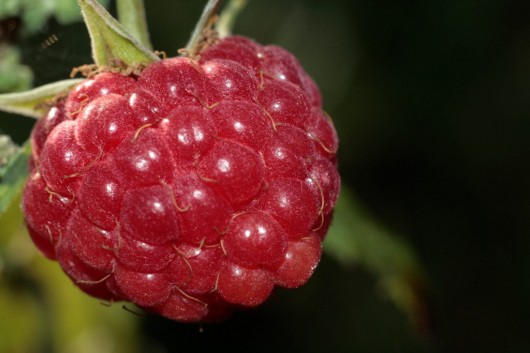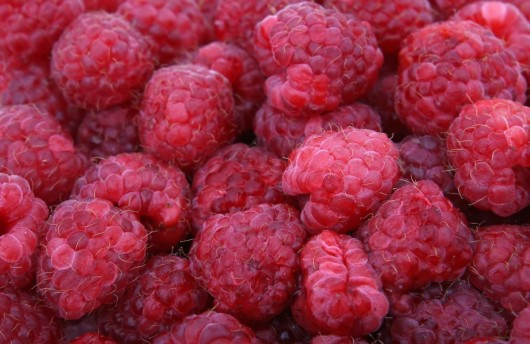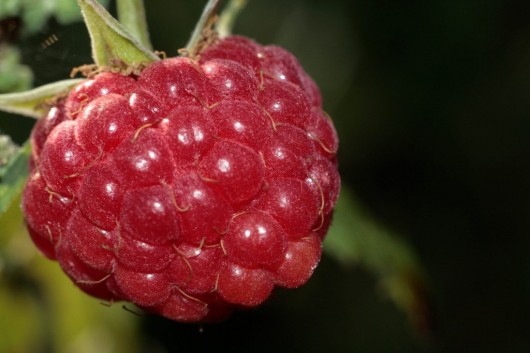Raspberry juice is one of those juices that are not only delicious to drink, but also offer you lots of various benefits, so if you want to know what are the health benefits of raspberry juice read on! Let us now take a closer look at the 100% pure undiluted raspberry juice itself to see what it’s made of and how it benefits your health.
Raspberry Juice Is Rich In Antioxidants
Out of the different colors of raspberries out there, we shall focus on red raspberry juice here. Being part of the berry family, it is rich in antioxidants that protect your cells from free radicals, thus delaying the aging process. Antioxidants play their role in reducing the risk of cancer and heart disease, since less ‘oxidation’ by unstable free radicals equals less cell damage, which translates to these benefits to your body.
High Vitamin and Mineral Content Is Responsible For Many Of The Health Benefits Of Raspberry Juice
There are also vitamins and minerals found in raspberry juice, which include vitamins B and C, dietary fiber, folic acid, magnesium, manganese potassium, calcium, phosphorus and zinc. The high vitamin C content of raspberry juice has anti-histamine effects to help minimize the allergic reactions in our bodies to certain foods or substances. Consuming just a Ľ cup serving of raspberry juice would already provide 30mg of vitamin C, meeting 50% of the recommended daily allowance (RDA).

Rich in Phytonutrients And A Natural Pain Killer
In addition to these nutrients, the health benefits of raspberry juice come from it being rich in phytonutrients such as anthocyanins, ellagic acid, salicylic acid, quercitin, and cathechins. The bright and deep red color in raspberry juice comes from the anthocyanin pigments. Research also shows that anthocyanins provide strong antioxidant properties, and are linked to improving your eyesight, preventing cancer, slowing the ageing process and loss of physical motor skills and mental memory, improving blood circulation, and even controlling diabetes. The antioxidant strength of anthocyanins was shown to be even stronger than vitamin E in some tests, where anthocyanins play a role in inhibiting 2 enzymes produced in our body, called COX-1 and COX-2. COX-1 is used to transmit messages for basic body maintenance functions, while COX-2 is used for pain signals and inflammation. By being able to naturally block or inhibit these 2 COX enzymes, raspberry juice in fact can function as a natural pain killer similar to ibuprofen or naproxen, and best of all without the side effects of drugs, being a natural fruit juice.
Oxygen Radical Absorbance Capacity
The antioxidant potency of raspberry juice is measured using the oxygen radical absorbance capacity (ORAC). ORAC measures how much time it takes for antioxidants to do their job in preventing oxidation. In general, research shows that people who consume a lot of fruits and vegetables with high ORAC values would protect their bodies better through these antioxidants. The ORAC value of raspberry juice measures about 4900 ORAC units per 100 grams. This makes raspberry juice among the top-ranked antioxidant fruits, and comparable to its other berry siblings such as cranberries and blueberries.
Raspberry Juice And Anti-cancer Properties
Pure raspberry juice is rich in ellagic acid, which is famous for its anti-cancer properties. This comes from the fact that ellagic acid is a phenolic compound, which has strong anti-carcinogenic characteristics that prevent and inhibit mutations in our cells that could potentially become cancerous. While research on cancer is still widespread and subjective, ellagic acid as a plant phenol has been rated as one of the most powerful ways of preventing cancer and slowing cancer cell growth. It does this by ‘binding’ to the cancer-causing chemicals, making them inactive and unable to mutate further when bacteria are present. This binding by ellagic acid also prevents carcinogens (cancer-causing chemicals) from binding to our DNA, which further helps in preventing cell damage, mutations, and cancer.
The strong anti-cancer properties of raspberry juice are also boosted by quercetin, which is a flavenol renowned as an antioxidant, as well as for its anti-carcinogenic and anti-histamine properties. A serving of 100 grams of juice provides about 12 mg of quercetin.
Protects Your Heart As A Natural Aspirin
Also being abundant in salicylic acid, raspberry juice has the same effects in protecting against heart disease like aspirin. Aspirin also helps in preventing the hardening of arteries known as arteriosclerosis, while also reducing the risk of Parkinson’s disease in later life. With about 5 mg of salicylic acid found in about 100 grams of red raspberries, raspberry juice certainly provides many healthy benefits without the dangerous side effects typical of drugs and medicines.
Low Calories
With a low glycemic index below 60, you can safely consume raspberry juice without fear of piling on calories unhealthily.
We can now conclude that the health benefits of raspberry juice are indeed amazing. Do make sure to drink more of this fruit juice to enjoy its health benefits as a powerful antioxidant with anti-aging, anti-cancer and antihistamine properties. Do not forget raspberry juice is also a natural pain killer, capable of protecting your heart health as well.


